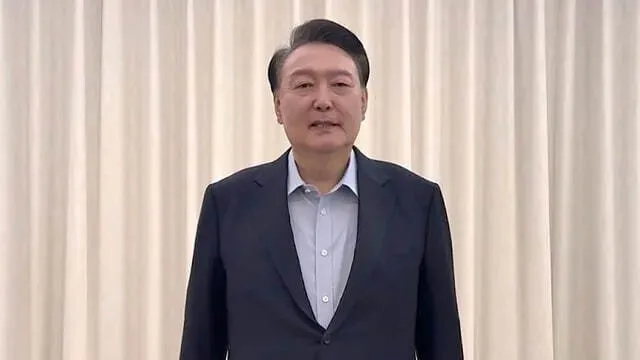On December 3, 2024, President Yoon Suk-yeol declared martial law amidst severe political deadlock and escalating tensions with the National Assembly. This decision, aimed at resolving the impasse, was met with immediate and intense backlash from both political circles and the public. The proclamation of martial law sparked widespread controversy, with the National Assembly swiftly passing a resolution to demand its repeal and filing a motion for President Yoon’s impeachment with the Constitutional Court. The situation plunged South Korea into an unprecedented political crisis, marking a critical moment in the country’s democratic history.

Following the declaration of martial law, opposition parties and civic groups labeled it a “virtual coup,” organizing nationwide protests. Massive candlelight demonstrations erupted in Gwanghwamun Square in Seoul and other major cities, with citizens expressing strong disapproval of President Yoon’s unilateral decision. Even within the ruling party, dissenting voices emerged, exposing deep divisions. Media and academics warned against potential abuses of power and the erosion of democratic principles under Yoon’s administration. The public’s growing discontent and the intense political pressure further deepened the crisis.
By the end of 2024, the Constitutional Court ruled the declaration of martial law unconstitutional, paving the way for President Yoon to face investigations for abuse of power and sedition. The Corruption Investigation Office for High-Ranking Officials (CIO) launched an intensive probe into Yoon’s actions. On January 19, 2025, the Seoul Western District Court issued an arrest warrant for President Yoon, citing concerns over evidence tampering and flight risk. This marked the first time in South Korea’s history that a sitting president was taken into custody, sending shockwaves across the political landscape. President Yoon was detained in solitary confinement at Seoul Detention Center and is now undergoing thorough investigations by law enforcement authorities.
The arrest of President Yoon generated widespread domestic and international controversy. His supporters denounced the court’s decision as “political persecution,” staging fierce protests in front of the Seoul Western District Court. Some demonstrators attempted to break into the courthouse, causing property damage and injuries. In contrast, opposition parties and civic organizations hailed the arrest as a pivotal moment for restoring the rule of law and democracy in South Korea. The international community also took note of the situation, highlighting the challenges faced by South Korea’s democratic and legal systems during this turbulent time.
President Yoon is currently under investigation for charges including sedition, abuse of power, and other allegations related to his actions while in office. He will remain in custody for up to 20 days while prosecutors gather evidence and interrogate him. The CIO alleges that Yoon exploited state power for personal political gain, particularly by mobilizing military forces to suppress political dissent during the declaration of martial law. If indicted and convicted, Yoon could face severe penalties, including life imprisonment or even the death penalty.

This crisis has become a significant test for South Korea’s democracy and the foundation of its rule of law. Public opinion on Yoon’s arrest remains deeply divided, but the case has sparked renewed discussions about the checks and balances necessary to safeguard democratic governance. Politicians are under growing pressure to use this incident as an opportunity to overhaul the nation’s political and governance systems. Beyond being a personal downfall for President Yoon, this event underscores the critical need for South Korea to reflect on the direction of its democracy. The ultimate outcome of Yoon’s case is expected to have far-reaching implications for the future of South Korean politics.



